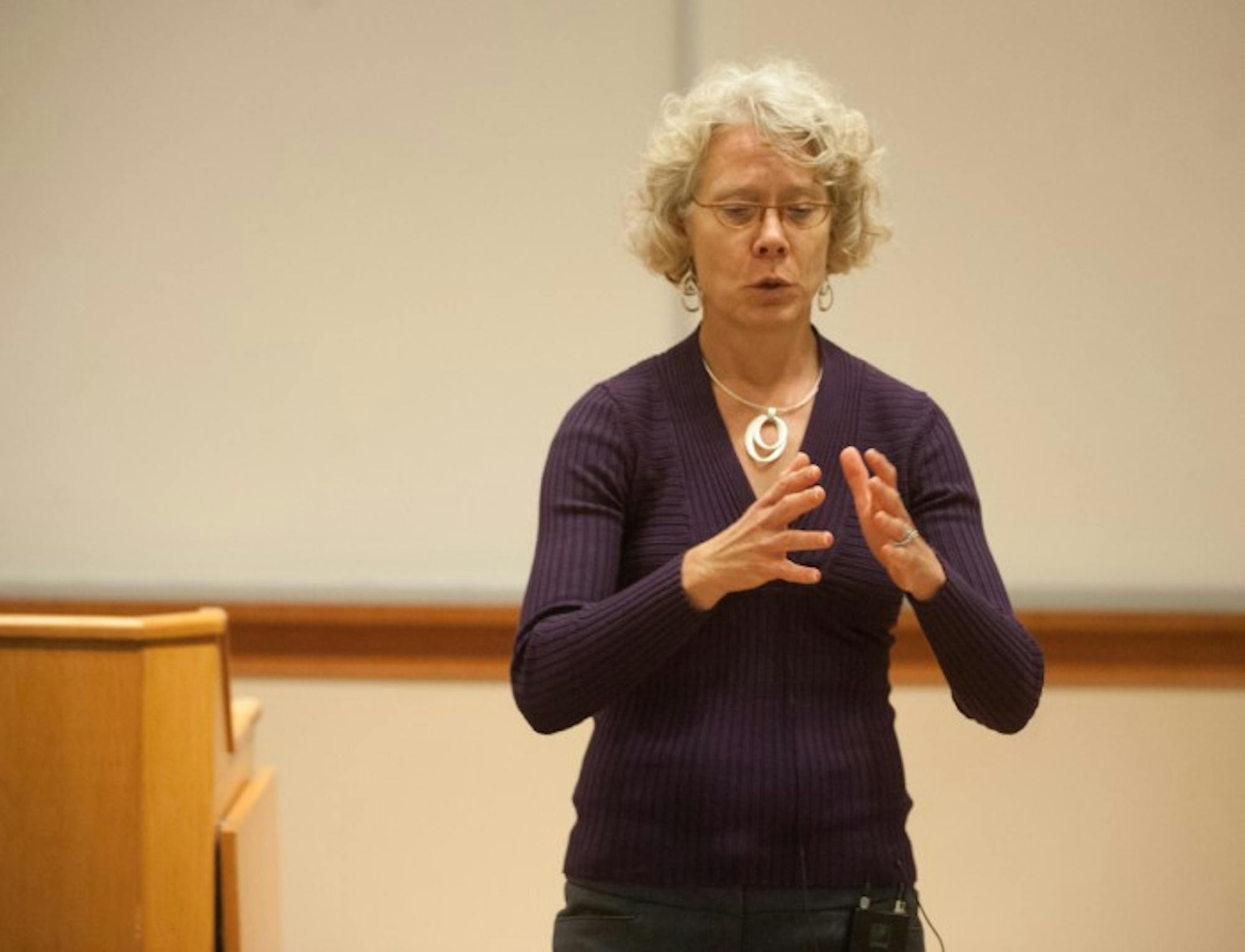Two and a half hours after her lecture concluded, one of Meg Penrose’s clients was executed for killing a police officer.
“Today is a somber day. It’s a difficult thing to talk about,” she said. “Tonight, as my client is executed, there are many people who will feel vindicated.”
Penrose, a professor of law at Texas A&M University and death penalty expert, spoke Wednesday evening at Eck Hall of Law about the moral debate surrounding death row, in a lecture titled “The Death Penalty, Dignity and Doing Justice.”

Meg Penrose, a professor at Texas A&M and Notre Dame law graduate, reflects on her experiences as a lawyer for people on death row at a lecture in Eck Hall of Law on Wednesday evening.
“He’s been on suicide watch for about a month in his cell, and they keep him on camera watch, and they will take him to the place, and I presume he’ll have his last meal and perhaps he’ll have discussions with people close to him, perhaps a spiritual advisor,” Penrose said. “Members of the victim's family will be driving down, and they’ll witness what they believe to be justice. But law and justice are not certainly the same thing.”
Penrose, a Notre Dame Law School graduate, said her client’s — 33-year-old Licho Escamilla — case moved through a number of courts before eventually being tried in the U.S. Supreme Court.
“I was literally the last attorney this client was permitted to have," she said. "My boss called me up and said, ‘Meg, I need you to take this client. He’s fired everyone else before this.’ I said that’s a pretty bad way to start, but I was his last option. He tried to fire me, but I was all he had.”
As Penrose’s client’s case moved through the various courts, she said the juries scrupulously looked at the evidence and the previous jury’s decision.
“We live in a society defined by laws, and the jury gave a sentence that was looked at several times,” Penrose said. “They actually sought the record, they wanted to actually look at the case.”
Penrose said this particular case caused her to continue discussing her ongoing personal conflict regarding the death penalty.
“I’m at a point in my career where I’m conflicted,” she said. “I don’t understand it from my religious background — I agree with the Pope. I don’t understand it from my moral perspective. But we need to find a just penalty that preserves the human dignity of the person.”
Penrose said her mother played a role in her decision to represent people who had committed heinous enough crimes to warrant the death penalty.
“I got this from my mother. She didn’t agree with the death penalty,” Penrose said. “She got it from Matthew, the verse ending with ‘for what you do for the least of my brothers, you did for me.’”
Penrose said her Notre Dame education shaped her to be a better person.
“I’ve learned about service, about serving those who are least deserving of justice, those who are least deserving of my time, my effort, the least deserving and yet, we help them,” she said. “The work is not popular. I would say it’s thankless. Every individual in the United States deserves representation. That’s not necessarily why I took that case. I’m not here to justify the crime, but the crime and the penalty are separate issues.”
Penrose also said there are unique opportunities and responsibilities for lawyers, particularly lawyers graduating from Notre Dame.
“You’ll learn about other cultures and other people and that will shape who you are, and it will make you a better person,” she said. “You are a part of the Notre Dame family. You are a different kind of lawyer. You are a Notre Dame lawyer. Do something to help someone. Do justice.”













